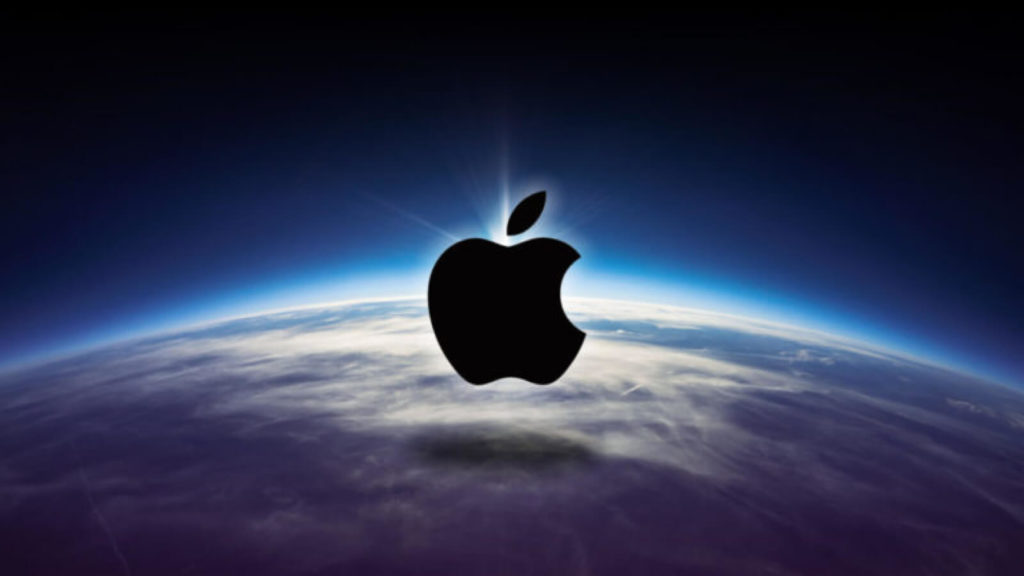Apple is the highest valued company in the world, and love them or hate them, everyone can learn from what got them there.
1. Consistency
The reason Apple announcements are so widely anticipated is because they’ve consistently done things in the past that got people excited. In one decade they introduced the iPod, iTunes, iPhone and iPad:
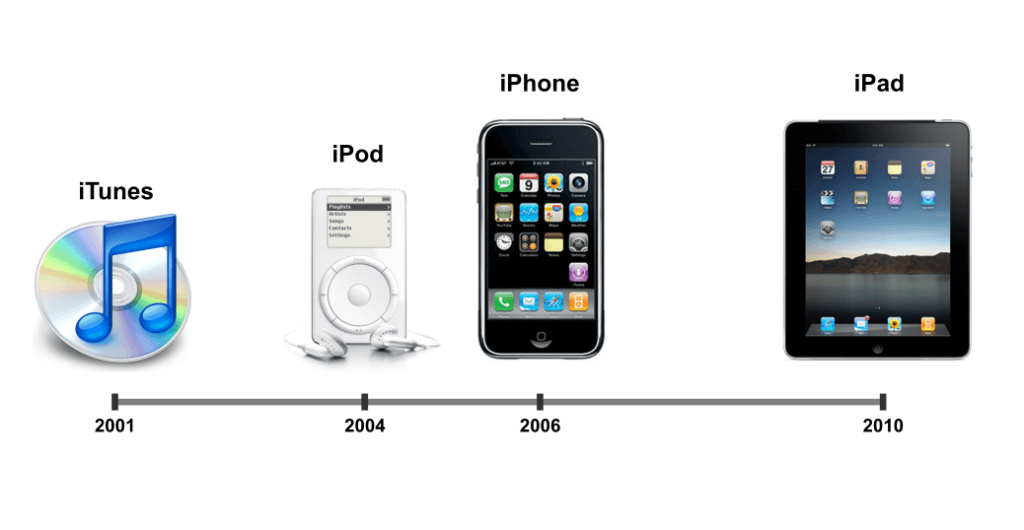
That’s the equivalent of releasing four of the most successful films of all time, back to back. When someone does that, people pay attention to your next movie.
In life and in business, your brand is what you do consistently. Apple have made a point of consistently delivering high end, quality, desirable products. When you’re not consistent, you must work much harder to win people’s attention each time. Most companies have to beg and plead with us to buy their stuff. Apple could write iPhone 6 on a shoebox and get 10m pre-orders.
You are exactly the same. If you deliver consistently, your work will be prized in advance. Your reputation will accelerate your successes. But to obtain this level of consistency, you’ll need:
2. Focus
The highest valued company in the world only makes a handful of products:

Sony had more varieties of Walkman than Apple has products in total. The first thing Steve Jobs did on his return to Apple was reduce their computing line to just four models (2 desktops, 2 laptops), aiming to make each ‘best in class’.
To be consistently great, you need to focus. Thinning yourself out is a sure route to mediocrity, even for a billion dollar business. Jobs said this to Nike’s CEO:
“Nike makes some of the best products in the world. Products that you lust after. But you also make a lot of crap. Just get rid of the crappy stuff and focus on the good stuff.”
Unfortunately, as we become successful, we all tend to diversify. Companies and people are constantly beset by demands to do more. Most succumb to these demands, and are weakened, one distraction at a time.
The lesson you should learn here is to do the opposite. Use your successes to narrow your focus. Say no to almost everything, and concentrate upon:
3. Choosing the right things
Many of Apple’s best choices were widely criticized at the time, but later proved to be insightful.
For example, the iPhone launched with a seemingly primitive ‘one app at a time’ model. Apple decided that the benefits (better battery life, simplicity of use) outweighed the cons (less control for power users). Likewise for not supporting Flash, having non-removable batteries, a single locked-down App store and dropping floppy drives.
The fact that most of the industry argued these decisions were wrong (before ultimately copying them) shows you how powerful these decisions were – Apple had an unusual connection with what customers really wanted, not what the industry thought they did.
This is a hard skill to copy, and one reason why Jobs was considered a genius. But to distill part of that genius: be your own customer, and take a fresh look at things. Don’t succumb to social pressures at the expense of your own judgment. This will lead you to:
4. Distinction
Apple’s official slogan used to be Think Different, and not without reason. Their products stand out amongst a sea of rivals. In 1998, compare the first iMac:
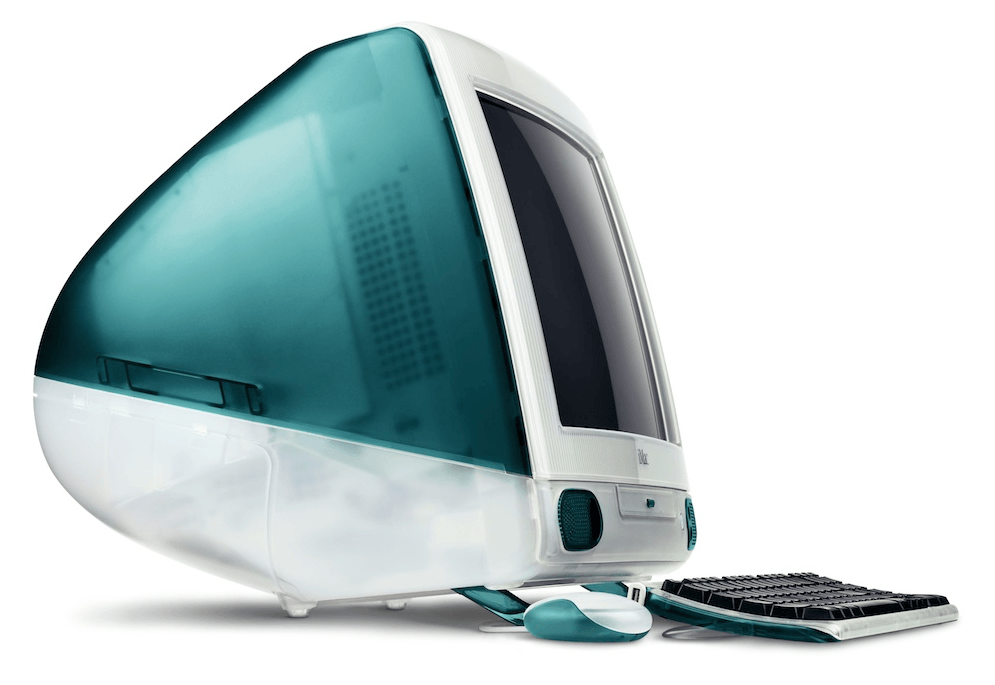
with a traditional PC of the time:

Or the first iPhone:
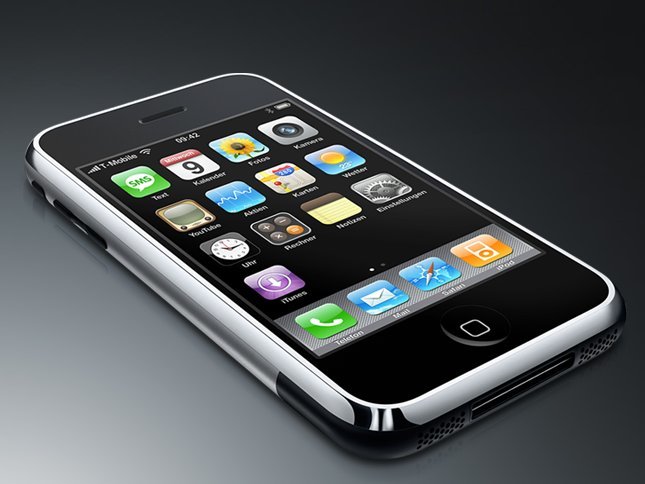
with the other “hottest phones of 2007”:
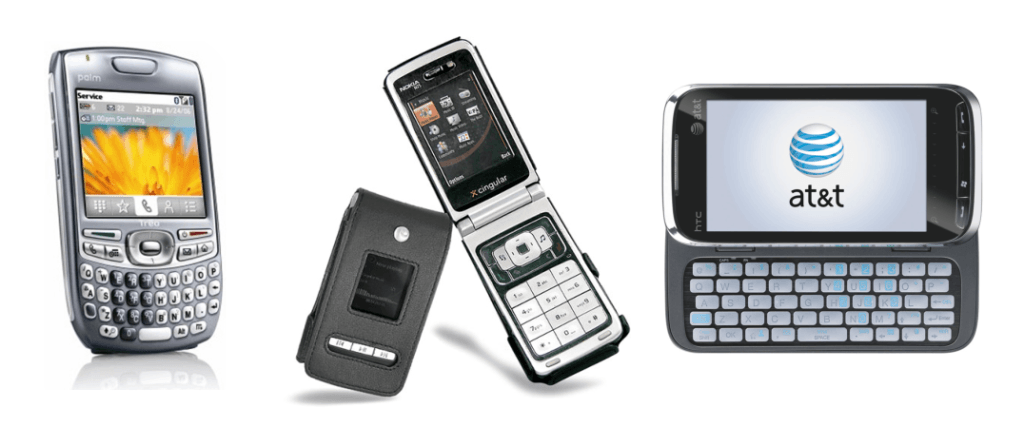
The best kind of distinction is the kind that makes your customer feel distinctive. Apple have managed the trick of making themselves the Porsche of the mobile and computing world, without having to limit themselves to the top 1% of earners. Apple’s distinction was in making the right decisions (as judged by the buying public, not industry experts) and thereby inciting:
5. Desirability
Apple is a master of creating things that people want. It’s an oft overlooked business maxim that:
Product Desirability = Profitability
Through a remarkable fusion of consistency, focus, saying no, choosing the right things and distinctive products, Apple has built a brand cachet that any company would kill for. But ultimately, it’s really simple: people want their stuff.
This sounds obvious, but the majority of businesses, writers, musicians, poets and playwrights could attribute their failures to simply never creating things that people want.
One more thing
Jobs said he lived at the intersection of technology and liberal arts.
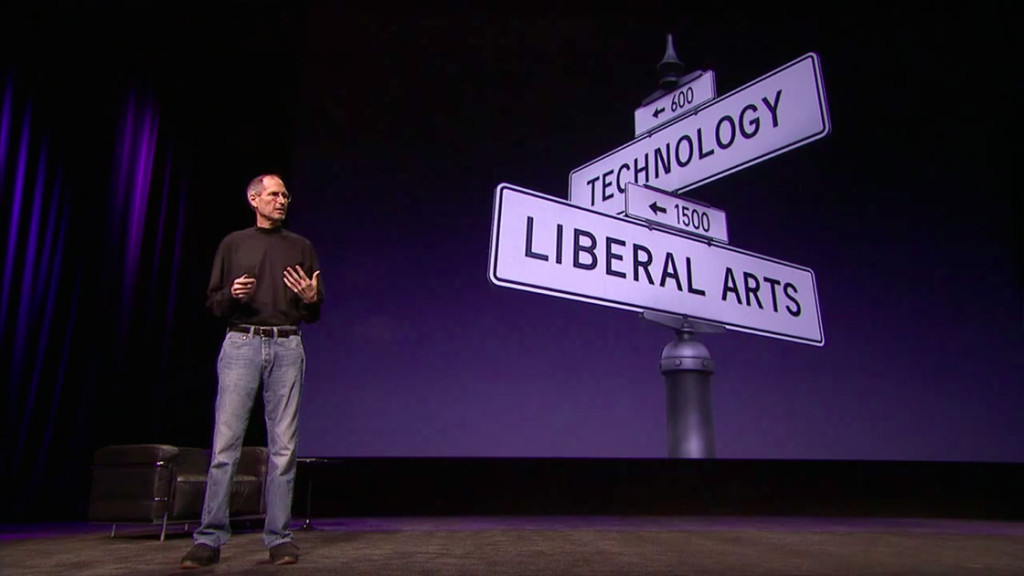
Most tech companies focus, understandably, on tech. Apple have built their success on artistic values.
To make great art, you focus on what you’re passionate about. Your work gets people excited. You make decisions that piss some people off because the otherwise your art is a slurry of mediocrity. No good artist surrenders to groupthink or is led by committee. I believe this artistic ethos is at the core of Apple’s DNA, and it’s the absolute antithesis of almost every corporation elsewhere in the world.
And it may just be the ultimate secret to their success.
What next?
All this points the way for Apple’s potential downfall. If they succumb to pressure they might start diversifying, saying yes to more, losing focus. As rivals get better at copying, they risk losing their distinction.
The biggest threat to Apple comes from within. They have built themselves upon the highest of expectations, and if they should fail them, they have a long way to fall.
Right now, Apple is the most valued company in the world. Fifteen years ago they were almost bankrupt. Whatever success they have, they earned it. All it took was a consistent, focused philosophy of saying no, focusing on the right things and building distinctive products that people want. What’s your excuse?
